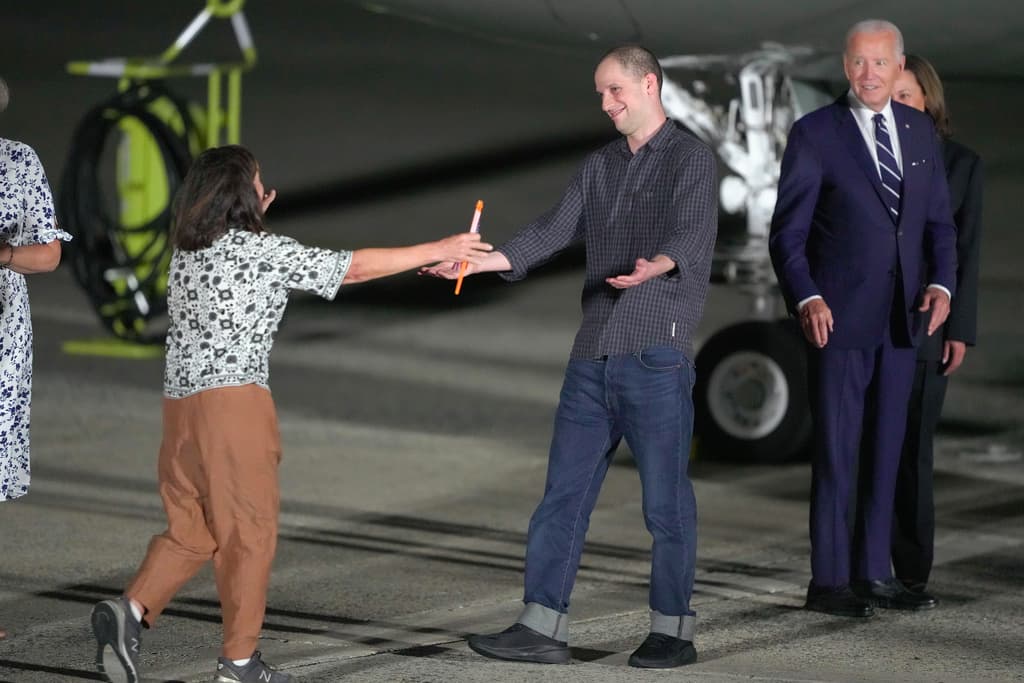The former marine soldier Paul Whelan and the two journalists Evan Gershkovich and Alsu Kurmasheva were embraced by their families – and by President Joe Biden and Vice President Kamala Harris, who were present.
They were part of the largest prisoner exchange between Russia and Western countries since the end of the Cold War. Over 20 prisoners were exchanged. In addition to Russia and the USA, Norway, Poland, Germany, Slovenia, and Belarus were involved in the agreement.
Arrested in Russia
Gershkovich, who works for The Wall Street Journal, was arrested during a reporting trip in Yekaterinburg in the spring of 2023. Russian authorities claimed without evidence that he was collecting secret information on behalf of the USA, and he was recently sentenced to 16 years in prison.
In a first statement, Gershkovich demanded that the political prisoners held in Russian prisons be released.
I have just spent a month in prison in Yekaterinburg where almost everyone I sat with was a political prisoner, he says to NBC News.
Paul Whelan was arrested in a similar way in Moscow in 2018 when he was about to attend a friend's wedding, and was sentenced in June 2020 to prison and hard labor for 16 years for espionage. Alsu Kurmasheva, a journalist at Radio Free Europe/Radio Liberty, was sentenced in July for spreading false information about the Russian military. All have denied the charges.
The agreement has involved significant concessions for the West and the USA and shows the imbalance in the view of political prisoners – Western journalists and dissidents were exchanged for Russians convicted of serious crimes, including murder.
There are some tough decisions behind such agreements, said Biden.
Putin hugged convicted murderer
Russia's President Vladimir Putin was present when the Russian citizens landed at Moscow's airport. He briefly hugged each returning person. Including Vadim Krasikov, convicted in 2021 of murdering a Chechen in a park in Berlin on orders from the Russian security service.
Germany's Chancellor Olaf Scholz said on Thursday that it was a difficult decision to release Krasikov.
No one took the decision to release a murderer sentenced to life imprisonment after just a few years lightly, said Scholz, but emphasized that those released in exchange feared for their health and even their lives.






